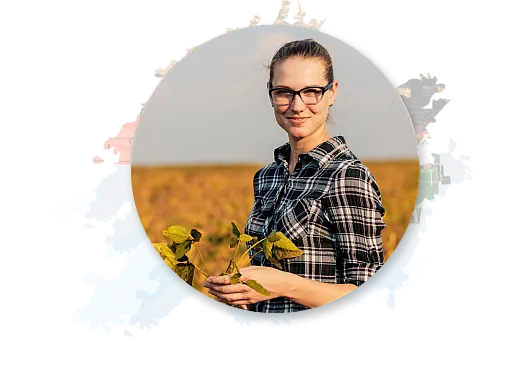
Certifications: Become the Trusted Voice in Agriculture
Certifications: The benchmark of professionalism
Join a network of elite professionals. Whether you’re advising growers on crop management or protecting soil health, our certifications validate your expertise and open doors to new career opportunities. Certification is the standard by which professionals are assessed for their expertise and impact. The purpose of a certification program is to protect the public and the profession. It is a voluntary professional enhancement to a person's career credentials and adds credibility, commitment, and dedication that provides valued solutions across agriculture and beyond.
Certified Crop Adviser (CCA)
CCAs connect their knowledge of agronomy, experience in the field, and commitment to standards of knowledge and professionalism to connect science and research to the farms and fields where science goes to work. CCAs are the professional conduit between scientists and their research and the on-farm expertise of the farmers who put that work into practice. A CCA is a professional adviser/consultant that spends the majority of their time advising growers or farm managers/operators on agronomic practices and can meet the standards of the program.
Associate Professional Soil Scientist (APSS) or a Certified Professional Soil Scientist (CPSS)?
Certified Professional Soil Scientist (CPSS) and Associate Professional Soil Scientist (APSS) certifications set standards for knowledge, skills, and conduct that define the professions of soil science and soil classification. APSS is for early career professionals and offers credibility and a pathway towards full certification of the CPSS, which requires additional training, experience, and expertise.
Certified Crop Adviser program

The Certified Crop Adviser (CCA) and Certified Professional Agronomist (CPAg) programs of the American Society of Agronomy are the benchmarks of professionalism. The CCA certification was established in 1992 to provide a benchmark for practicing agronomy professionals in the United States and Canada. In recent years, the CCA Program has expanded to Mexico, as well as outside North America.

Certified Professional Soil Scientist Certification
The SSSA certification programs, Certified Professional Soil Scientist and Associate Professional Soil Scientist, set standards for knowledge, skills, and conduct that define the professions of soil science and soil classification. These certifications offer similar benefits to the public as licensing programs, and provide clients, employers, and government agencies with a tool to help them choose professionals with the necessary skills to meet their needs.
